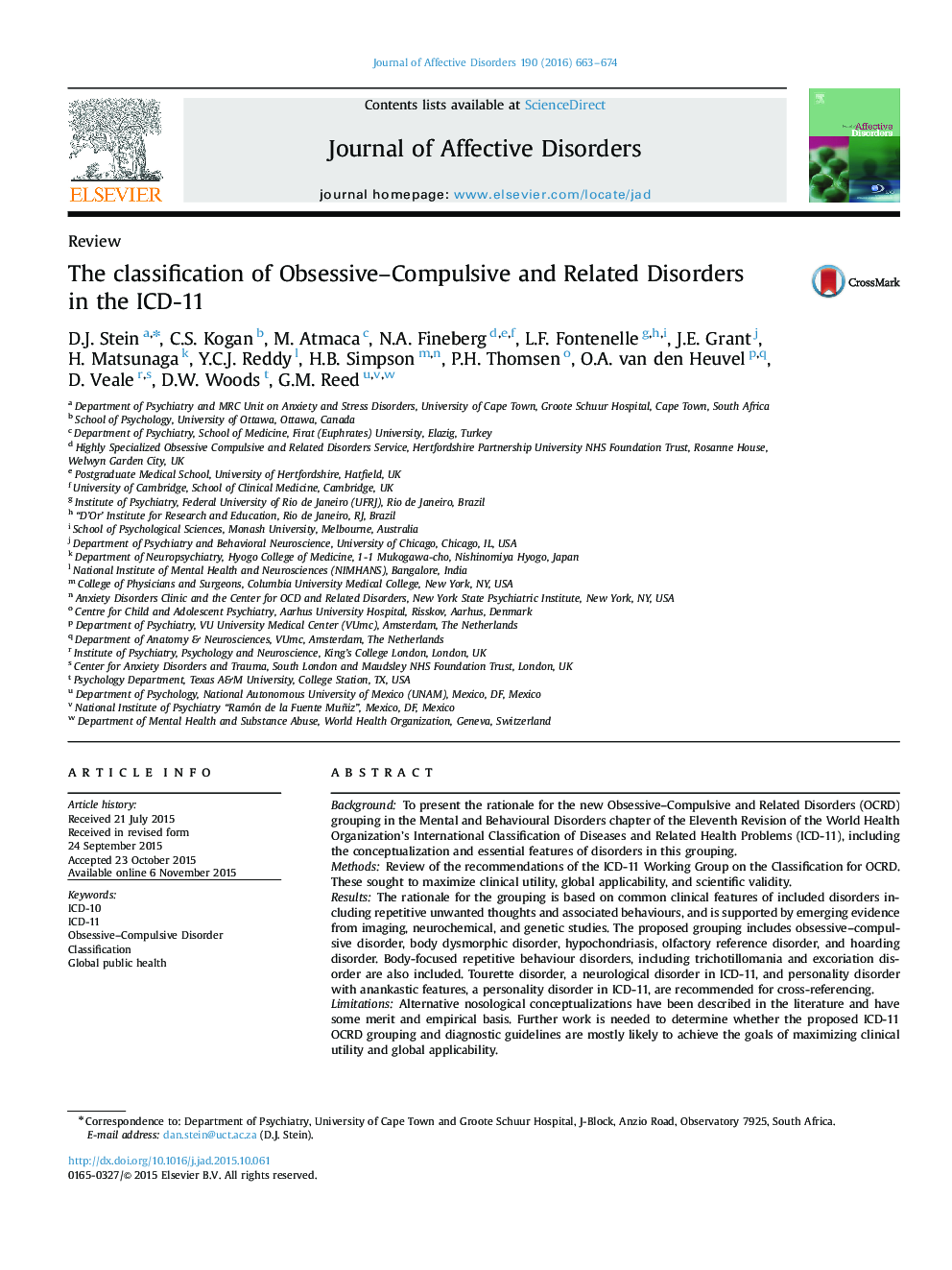| کد مقاله | کد نشریه | سال انتشار | مقاله انگلیسی | نسخه تمام متن |
|---|---|---|---|---|
| 6230810 | 1608135 | 2016 | 12 صفحه PDF | دانلود رایگان |

- The ICD-11 is guided by principles of clinical utility and global applicability.
- A new ICD-11 grouping of Obsessive-Compulsive and Related Disorders is described.
- Rationale and evidence for including each disorder in this grouping are provided.
- To participate in field studies, enroll at www.globalclinicalpractice.net.
BackgroundTo present the rationale for the new Obsessive-Compulsive and Related Disorders (OCRD) grouping in the Mental and Behavioural Disorders chapter of the Eleventh Revision of the World Health Organization's International Classification of Diseases and Related Health Problems (ICD-11), including the conceptualization and essential features of disorders in this grouping.MethodsReview of the recommendations of the ICD-11 Working Group on the Classification for OCRD. These sought to maximize clinical utility, global applicability, and scientific validity.ResultsThe rationale for the grouping is based on common clinical features of included disorders including repetitive unwanted thoughts and associated behaviours, and is supported by emerging evidence from imaging, neurochemical, and genetic studies. The proposed grouping includes obsessive-compulsive disorder, body dysmorphic disorder, hypochondriasis, olfactory reference disorder, and hoarding disorder. Body-focused repetitive behaviour disorders, including trichotillomania and excoriation disorder are also included. Tourette disorder, a neurological disorder in ICD-11, and personality disorder with anankastic features, a personality disorder in ICD-11, are recommended for cross-referencing.LimitationsAlternative nosological conceptualizations have been described in the literature and have some merit and empirical basis. Further work is needed to determine whether the proposed ICD-11 OCRD grouping and diagnostic guidelines are mostly likely to achieve the goals of maximizing clinical utility and global applicability.ConclusionIt is anticipated that creation of an OCRD grouping will contribute to accurate identification and appropriate treatment of affected patients as well as research efforts aimed at improving our understanding of the prevalence, assessment, and management of its constituent disorders.
Journal: Journal of Affective Disorders - Volume 190, 15 January 2016, Pages 663-674